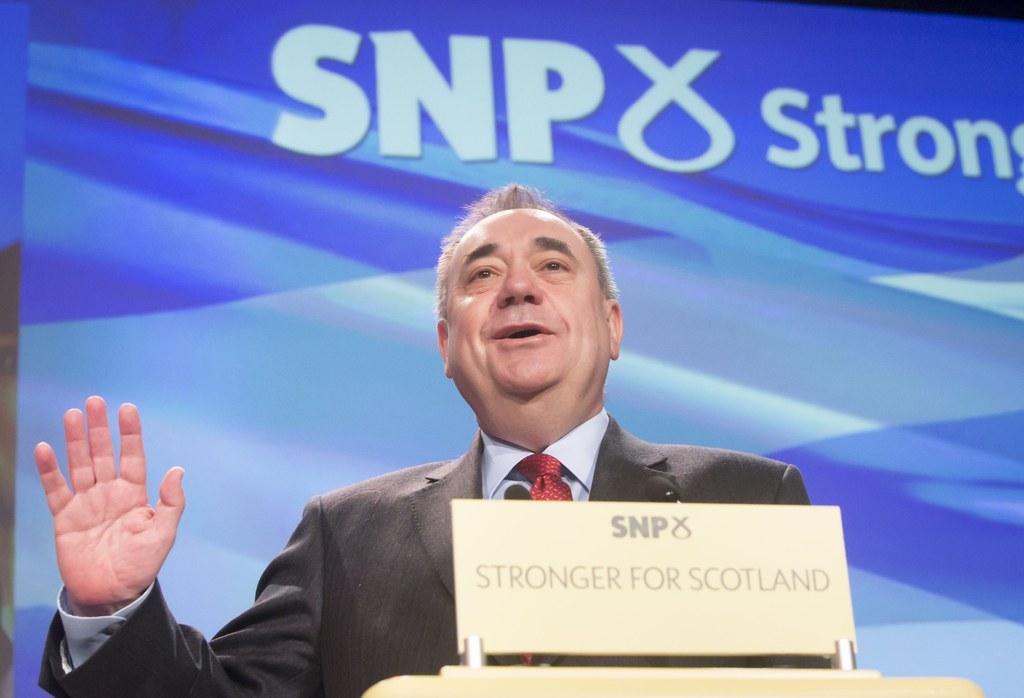
In recent months, the SNP has become one of the most powerful political entities in the UK, north or south of the Scottish border – and the delegates at its conference in Glasgow knew it.
Just six months after the SNP lost an independence referendum it had impatiently waited for since 1934, the party held its biggest-ever conference – buoyed by a 400% increase in membership since September's vote – and is now preparing to have the decisive say on who the prime minister will be after 7 May.
"We will lock David Cameron out of Downing Street," party leader Nicola Sturgeon told a 3,000-strong crowd this weekend, "and if you want a Labour government to have backbone and guts, you need to elect SNP MPs to provide it for them."
Almost every major party outside of Labour and the Conservatives – including the Liberal Democrats, the Greens, UKIP, and even Plaid Cymru – has boldly predicted it will hold the "balance of power" in May.
However, poll after poll has indicated that the SNP will be the UK's third-biggest party, projected to win up to 53 of Scotland's 59 seats – a previously unimaginable total. Party insiders, attempting to temper the soaring expectations, still talk of a number nearer 30.
The latest SNP membership count. #SNPConf
Either way, the SNP can talk of holding the balance of power with real authority – and its members know it.
From party leader Nicola Sturgeon to new members attending a party conference for the first time, attendees at Glasgow's SECC venue this weekend genuinely believed the SNP is preparing to shake the foundations of the UK parliament, or "Westminster" as members refer to it, usually with a tone of barely concealed disgust.
What's more, the new SNP members are fresh, energised, and evangelical: On the opening day of the conference, delegates were asked to stick their hand up if they were new members. Almost every arm was raised.
"I've never seen anything like this," said one emotional party member, John Allan, who joined in 1966, as he walked through the crowds. "There have been times when people have laughed at us – in fact, lots of you [the media] still do – but something is happening here that I didn't think I'd ever see."
He was talking about a party that has rapidly increased in size yet has stayed incredibly united. One party member, John Buist, said there would be small disagreements in the party, but "they will be nothing compared to what we believe in – independence and social justice – as a glue which keeps us together".

For many outside the party, this unity looks unhealthy and quasi-religious. For those inside the SNP, it's their party's greatest strength.
For example, this weekend journalists became excited – and SNP parliamentarians became worried – that a motion on all-women shortlists might be defeated, causing embarrassment to leader Nicola Sturgeon, a staunch feminist and backer of the motion.
But after a debate at which the party's big hitters spoke in favour of the shortlists, it passed with no problem at all.
Other have suggested that there is a power struggle between Nicola Sturgeon and Alex Salmond – but in an exclusive interview with BuzzFeed News, Sturgeon happily dismissed the suggestion, and was comfortable with admitting she goes to Salmond for advice as part of "Team SNP".
There is an absolutely outrageous queue to get Alex Salmond to sign his book. #snpconf
Healthy or not, it is the unity, group belief, and remarkable energy among its members that makes the SNP such an impressive force heading into the election.
If the maths works out, the SNP could well make Ed Miliband prime minister – even if he refuses to negotiate a deal with them. After all, they've promised to do everything they can to block the Tories.
And under this strategy, if Miliband is in Downing Street and wants to pass some laws, he's going to have to start listening to Nicola Sturgeon – whether he likes it or not.

